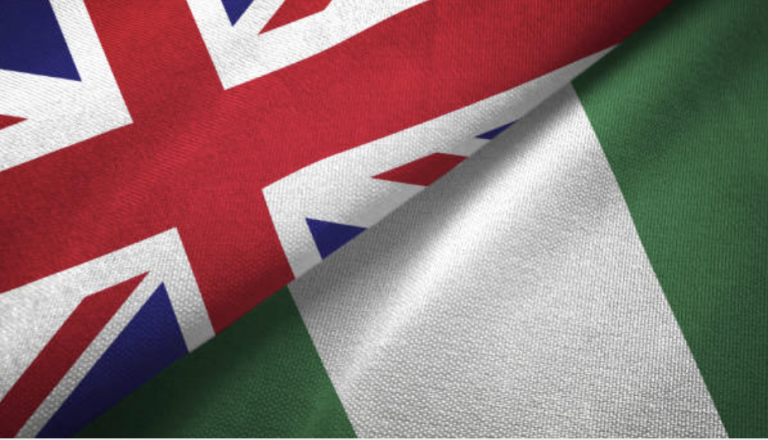Refined oil accounted for over two-thirds of the UK’s goods exports to Nigeria in the year ending June 2025, rising sharply to £1.5bn, according to the UK–Nigeria Trade and Investment Factsheet. Refined oil represented 68.8% of total UK exports to Nigeria, up 62.8% from the previous year.

Overall, UK exports to Nigeria grew 12.3% to £5.6bn, while imports from Nigeria rose 8.2% to £2.3bn, bringing total bilateral trade in goods and services to £8bn, up 11.1% from 2024. Goods exports accounted for £2.2bn, while services made up £3.5bn.
Aside from refined oil, top UK exports included toilet and cleansing products (£55.8m), industrial machinery (£42.7m), textile fabrics (£40.1m), and mechanical power generators (£35.1m), all posting year-on-year growth.

Nigeria’s main exports to the UK were crude oil (£1.3bn, 73.1% of goods), refined oil (£224m), and gas (£168m). Gas exports surged 75%, refined oil rose 62.6%, and crude oil grew 7.9%, aided by the Dangote Petroleum Refinery, which is boosting Nigeria’s refined oil output.
The UK ran a £3.3bn trade surplus with Nigeria, up from £2.8bn the previous year. Nigeria was the UK’s 36th largest trading partner and 27th largest export market.
Despite trade growth, investment flows weakened: UK FDI in Nigeria fell 24.7% to £385m, while Nigerian investment in the UK dropped 41.2% to £489m.

Looking ahead, Nigeria’s refined oil imports are expected to decline after President Bola Tinubu approved a 15% levy on imported petrol and diesel, increasing costs and favoring domestic refiners like Dangote. Experts warn the move may raise pump prices but could stabilize supply and strengthen local refining in the medium term.



